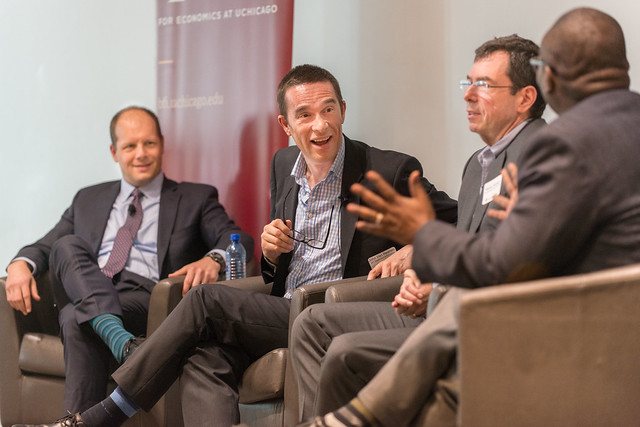
- About
- Network
- Research Initiatives
- Big Data Initiative
- Chicago Experiments Initiative
- Health Economics Initiative
- Industrial Organization Initiative
- International Economics and Economic Geography Initiative
- Macroeconomic Research Initiative
- Political Economics Initiative
- Price Theory Initiative
- Public Economics Initiative
- Ronzetti Initiative for the Study of Labor Markets
- Socioeconomic Inequalities Initiative
- Research Initiatives
- Scholars
- Research
- Saved by Medicaid: New Evidence on Health Insurance and Mortality from the Universe of Low-Income AdultsAngela Wyse and Bruce MeyerMeaning at WorkNava Ashraf, Oriana Bandiera, Virginia Minni, and Luigi ZingalesSeparation of Church and State Curricula? Examining Public and Religious Private School TextbooksAnjali Adukia and Emileigh Harrison
- Insights
Research Briefs
Videos
BFI Youtube Channel
- Events
Upcoming Events
- News










